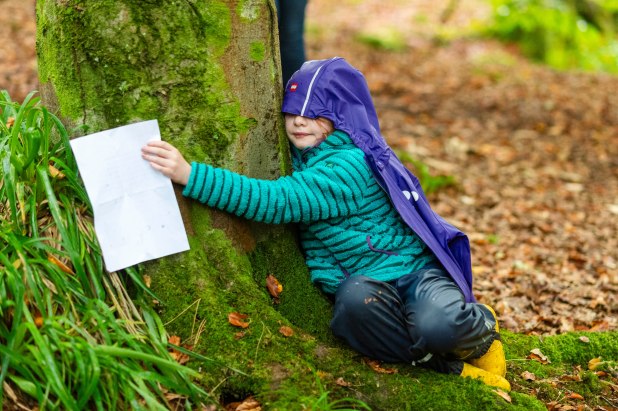
Living
Tiger King Animals to be Turned Over to the Feds
Tiger King as a TV show, docu-series drama and live-reality glimpse into business insanity took the cable and streaming world by storm. It was a classic Greek tragedy of a pumped-up king of his own world destroyed by his own acts and turned on by his closest people and partners. By the end of the series, the show’s main character was behind bars, his partners and closest workers scattered, and his business partners turning out to be less-than-stellar compadres in a crazy, real-life drama. As it turns out, yet one more chapter in the story has now just been written.
One of the big backstories of Tiger King was the treatment of the big cats that made the owner, Joe Exotic, famous in the first place. After a huge federal investigation into the original owner participating in a murder-for-hire contract, the remaining partners finally had to agree to turn over the remaining animals to the Department of Justice recently. This was the closing act in the secondary federal charges the government brought against the business, in particular regarding violations of the Endangered Species Act as well as the Animal Welfare Act. Viewers will remember investigators found multiple pieces of evidence confirming many of the sick cats had been euthanized and buried on the grounds without any proper protocols being followed.
The primary charge against the company is centered on the inhumane treatment of the big cats that were raised, trained and used by the business for its entertainment product to consumers. The conclusion was very much a paper one; the 68 big cats that were involved had long before been transferred to zoo environments.
The Lowes, the infamous couple partners who ended up with the park after the main Tiger King character, Joseph Maldonado-Passage or Joe Exotic, was arrested and jailed, ended up with full rights to run the park through their business deal with Joseph (a deal he made at the end as a desperate reach for last-minute financing to keep the business alive). However, the Lowes themselves were put out of commission when their own business license was shut down in 2020 based on the investigator’s condition reports.
Squalid kennel conditions, dangerous breeding, poor health conditions and similar that amounted to determined animal torture convinced the federal district judge on the case to shut the operations, turn over all juvenile animals, and no longer run the park as an entertainment business. Essentially, it killed any chance of the business returning to being an animal show moneymaker that Joe Exotic had originally created. Then, in a followup up concerted move, the U.S. Fish & Wildlife Service seized the remaining adult animals as well.
Jeff Lowe, originally cast in the documentary as a bit of a carpetbagger taking advantage of Joe Exotic’s desperation, ended himself being charged for violating the Endangered Species Act, adding additional pressure for him and Lauren Lowe to give up any title to the adult animals altogether. That also included other species such as ferrets, foxes, a camel, lemurs and more.
In short, no one came out on top of the disaster of the Tiger King show, not even those left behind after the original criminal actions and arrests as well as trials.
Living
New Coral Feeding Device Offers Hope for Reef Restoration

A team of scientists from The Ohio State University has unveiled a groundbreaking device designed to enhance food sources for coral reefs, offering a potential boost to restoration efforts. The device, called the Underwater Zooplankton Enhancement Light Array (UZELA), works by attracting zooplankton to coral habitats, increasing their availability as a food source.
UZELA is a submersible, programmable light capable of operating for up to six months on a single battery. When maintenance is needed, trained divers can perform simple servicing. The device activates for roughly an hour each night, emitting a specific type of light that encourages zooplankton accumulation without disturbing other marine species. This process enhances the feeding opportunities for corals, improving their chances of survival and growth.
Encouraging Results from Initial Tests
Researchers tested UZELA near two native Hawaiian coral species, Montipora capitata and Porites compressa. Their observations showed a seven-fold increase in local zooplankton populations and a dramatic improvement in coral feeding rates—ranging from 10 to 50 times higher than usual. These findings were published in Limnology and Oceanography: Methods.
According to study lead Andréa Grottoli, a professor of earth sciences at The Ohio State University, coral reefs play a disproportionately important role in marine ecosystems. “Although reefs make up less than 1% of the ocean, they support a third of all marine life,” she explained. “With increasing threats, we must find ways to protect them.”
The Growing Threat of Coral Bleaching
Extreme ocean temperatures continue to endanger coral reefs. The U.S. National Oceanic and Atmospheric Administration (NOAA) recently reported that from February 2023 to April 2024, nearly 60.5% of the world’s coral experienced bleaching. This occurs when corals expel the algae that provide them with essential nutrients, making them more susceptible to disease and die-off.
While corals can recover if water conditions stabilize, many struggle due to a lack of available food. The presence of concentrated zooplankton, as facilitated by UZELA, could help mitigate some of the negative effects and provide corals with the nutrition they need to survive.
A Short-Term Solution with Long-Term Potential
Although UZELA is not a permanent fix for coral degradation, researchers see it as a valuable tool for temporary relief. Grottoli compared it to “a band-aid that could help buy us time” while broader solutions, like reducing carbon emissions, are pursued.
Currently, UZELA devices are assembled by hand, but researchers are working with a local engineering firm to refine the design for mass production. If successful, an improved version could be ready within the next few years, allowing for expanded deployment in vulnerable coral reef regions.
“Addressing climate change is the only way to truly save coral reefs,” Grottoli emphasized. “But tools like UZELA give us a fighting chance to protect some reefs while we work toward a more sustainable future.”
Living
Kazakhstan’s Snow Leopard Population Soars Toward Historic Highs

Kazakhstan’s snow leopard population has made a remarkable recovery, with current estimates ranging from 152 to 189 individuals. These numbers echo those last seen in the 1980s, marking a milestone in global conservation efforts. However, human activities continue to pose significant challenges to the survival of this elusive species.
Known locally as the irbis, the snow leopard is classified as vulnerable on the International Union for Conservation of Nature’s (IUCN) Red List. It is also listed in the national Red Books of all 12 countries within its range. In Kazakhstan, snow leopards inhabit rugged mountainous regions, including the Altai, Tien Shan, Zhetysu Alatau, and other large mountain systems.
Since 2018, Kazakhstan has implemented a snow leopard conservation initiative under the United Nations Development Program (UNDP). This effort has led to a population increase of over 26% since 2019. Alexei Grachev, executive director of the Snow Leopard Foundation and head of the Snow Leopard Monitoring Center, emphasized that protected areas have played a pivotal role in stabilizing and boosting the population.
Key habitats include Ile-Alatau National Park, Altyn-Emel National Park, and the Katon-Karagai Reserve. The Zhetysu region, in particular, has the highest population density due to favorable factors such as plentiful prey, effective protection measures, and minimal human interference. In contrast, the Katon-Karagai Reserve’s snow leopard population remains small but is showing signs of recovery. Photo traps first confirmed their presence in 2020, and a recent sighting of a female with two cubs offers hope for continued growth.
Ongoing Threats and Conservation Efforts
Despite the positive trends, snow leopards face persistent threats, including poaching, habitat disruption from expanding economic activities, climate change, and conflicts with local communities. To address these issues, Kazakhstan is working to expand protected areas, such as the proposed Merken Regional Park in Zhambyl Oblast. The use of satellite telemetry has also advanced conservation efforts, with 11 snow leopards collared in 2021 to monitor their movements and behaviors.
High mortality rates among young snow leopards remain a concern. Juveniles often migrate to neighboring countries where the risk of human-wildlife conflict is higher. To reduce such conflicts, Kazakhstan offers financial compensation to herders for livestock losses caused by snow leopards, aiming to prevent retaliatory killings.
International Recognition and Collaboration
Kazakhstan’s achievements in snow leopard conservation have drawn international acclaim. While many countries struggle with declining or stagnant snow leopard populations, Kazakhstan has demonstrated measurable progress. Collaborative efforts with Kyrgyzstan, supported by international agreements, have further strengthened regional conservation initiatives. UNDP projects have enhanced protection in 14 natural areas across Kazakhstan, utilizing advanced tools such as camera traps, drones, and thermal imaging devices.
The resurgence of Kazakhstan’s snow leopard population stands as a testament to effective and sustained conservation strategies. By safeguarding this iconic predator, the country contributes to global biodiversity and highlights the importance of proactive environmental stewardship.
Living
Study Highlights the Mental Health Benefits of Time Outdoors for Children

A new study has found that spending time in nature can significantly improve the mental health of children, particularly those with pre-existing emotional challenges. The research, published in JAMA Network Open, demonstrates that even simple, low-cost programs involving time outdoors can lead to remarkable benefits for children aged 10 to 12.
Nature as a Mental Health Equalizer
The study, conducted in Quebec, Canada, involved over 500 schoolchildren who participated in a three-month program in the spring of 2023. Researchers found that children with the most significant mental health issues—such as anxiety, depression, aggressiveness, and social difficulties—experienced the greatest improvements after spending two hours a week in natural environments.
Study senior author Professor Marie-Claude Geoffroy of McGill University highlighted the transformative effects:
“We found that children with higher mental health symptoms at baseline showed greater reductions in symptoms following the intervention.”
The intervention acted as a mental health equalizer, reducing disparities among children and offering particular support to those most vulnerable.
The Program: Learning in Nature
As part of the program, teachers moved regular class activities—such as lessons in math, science, and languages—into local parks or green spaces for two hours each week. Additionally, they included 10- to 15-minute activities aimed at promoting mental health. Examples included:
- Drawing a tree
- Writing haikus
- Mindful walking
The study’s first author, Tianna Loose from the University of Montreal, emphasized the simplicity and accessibility of the approach:
“The intervention was low-cost, well-received, and posed no risks, making it a promising strategy for schools with access to greenspaces.”
Positive Outcomes for Students and Teachers
At the end of the program, teachers reported that students were calmer, more relaxed, and more attentive in class after their outdoor sessions. The most significant behavioral improvements were observed in children who had exhibited high levels of distress at the start of the study.
The findings build on observational research and mark the first time a randomized controlled trial has been used to evaluate the mental health benefits of nature for children. The study aligns with a recent UNICEF report underscoring the importance of green spaces for childhood development.
Inspiration from the Pandemic
The project was inspired by the COVID-19 pandemic, when concerns arose about children spending excessive time indoors. Professor Geoffroy shared how her own experiences influenced the study:
“My kids and I spend lots of time in parks, so I’ve seen the benefits of spending time in nature, both for myself and for them. I thought, maybe we can create a free and accessible intervention for school children to experience similar benefits.”
Next Steps: Teenagers and Climate Anxiety
The research team plans to expand their work to include teenagers, co-designing nature-based programs aimed at reducing climate anxiety, improving well-being, and fostering a deeper connection to the environment.
Co-author Professor Sylvana Côté from the University of Montreal noted the broader implications of the findings:
“This suggests that nature-based programs may offer targeted benefits for children with higher levels of mental health vulnerabilities and potentially act as an equalizer of mental health among school-age children.”
A Simple Yet Powerful Solution
With schools increasingly recognizing the value of mental health support, this study highlights the potential of outdoor learning programs. By incorporating nature into the school day, educators can provide children with a calming, restorative environment that improves emotional well-being, focus, and social interaction—all without significant costs or risks.
As schools consider innovative ways to support students, nature-based interventions offer a promising solution that benefits both children and their communities.
Living
India’s Tiger Population Doubles Since 2006, Reaches 3,682

India has achieved a remarkable milestone in wildlife conservation, with the nation’s tiger population growing to 3,682 in 2022, up from 2,967 in 2018. This marks a consistent annual increase of 6% in areas that have been systematically monitored, according to a statement presented to Parliament.
Strategies Behind the Growth
The rise in tiger numbers is largely attributed to the efforts of the National Tiger Conservation Authority (NTCA). Their conservation strategy is built around three pillars:
- Material and Logistical Support: Ensuring reserves have the necessary resources for effective management.
- Restricting Habitat Interventions: Limiting human activity in tiger habitats to maintain ecological balance.
- Standard Operating Procedures (SOPs): Guidelines to address challenges such as human-tiger conflicts and population management.
Minister of State for Environment, Forest, and Climate Change, Shri Kirti Vardhan Singh, emphasized the importance of these initiatives in a written reply to the Lok Sabha.
Regional Growth and Declines
Significant growth in tiger populations has been recorded across several landscapes in India:
- Central Indian Landscape Complex and Eastern Ghats: Numbers rose from 1,033 in 2018 to 1,439 in 2022. This area includes states like Andhra Pradesh, Telangana, Madhya Pradesh, and Maharashtra.
- Shivalik-Gangetic Plain Complex: Encompassing Uttarakhand, Uttar Pradesh, and Bihar, tiger numbers increased from 646 to 819, with Uttarakhand alone seeing a rise from 442 to 560.
- Sundarbans: The iconic mangrove forests reported an increase from 88 tigers in 2018 to 101 in 2022.
However, certain regions have experienced declines. For instance:
- Odisha, Telangana, Chhattisgarh, and Jharkhand: Notable reductions in tiger numbers.
- Arunachal Pradesh: The population dropped from 29 in 2018 to just 9 in 2022.
Madhya Pradesh and Maharashtra: Conservation Success Stories
Madhya Pradesh and Maharashtra stand out as success stories:
- Madhya Pradesh’s tiger population grew from 526 in 2018 to 785 in 2022.
- Maharashtra saw an increase from 312 to 444 in the same period.
Project Tiger: A Conservation Cornerstone
India’s tiger population has more than doubled since 2006, when the number stood at 1,411. This growth is supported by Project Tiger, a government initiative established in 1973. The program funds conservation efforts through Annual Plans of Operation (APOs), derived from overarching Tiger Conservation Plans (TCPs). These plans focus on:
- Limiting habitat interventions in reserves to prevent excessive tiger dispersion.
- Managing buffer zones to reduce human-wildlife conflicts while promoting connectivity to other habitats.
Reducing Human-Tiger Conflict
To address human-tiger conflicts, the NTCA has implemented SOPs that include:
- Managing dispersing tigers.
- Reducing livestock predation to mitigate conflict.
- Relocating tigers from overcrowded reserves to areas with lower population density.
A Model for Global Conservation
India’s success in tiger conservation is a testament to the country’s dedication to preserving its biodiversity. The ongoing efforts not only secure the future of this iconic species but also enhance the health of ecosystems where tigers thrive. With continued support and adaptation to emerging challenges, India remains a global leader in tiger conservation.
Living
Glasgow’s First Tree Hugging Tournament Aims to Bring People Closer to Nature

In a shady clearing at Dams to Darnley Country Park, Hannah Willow, barefoot and clutching twigs and leaves, gently approached a towering tree. After gracefully circling it, she wrapped her arms around its wide trunk, resting her cheek against the rough bark.
Willow, a 36-year-old teacher and children’s book author, was crowned the champion tree hugger at Glasgow’s inaugural Tree Hugging Tournament. The event, organized just outside the city, was designed to help people reconnect with nature in what organizers called a “playful and heartfelt way.”
“I’m over the moon,” Willow said, adorned with her leaf-and-branch crown. “I’ve always been a bit of a tree hugger, so being here with others who feel the same is wonderful. The woods are truly where I feel at peace.”
About 15 adults and four children participated in the event, which draws inspiration from Finland’s World Tree Hugging Championships. As the weekend’s champion, Willow earned a spot in the international competition, held in the HaliPuu forest, just north of the Arctic Circle.
The global competition was established in 2020 to lift spirits during the pandemic and encourage people to reduce stress by spending time in forests. Since then, similar events have sprouted worldwide, including Glasgow’s tournament and another in the Scottish Highlands.
Shuna Mercer, 50, and Vicki Dale, the organizers, emphasized the mental health benefits of nature. Mercer, an outdoor play therapist, explained, “We wanted to raise awareness about how vital it is to reconnect with the natural world. With so much time spent on screens, people are missing out on the emotional benefits that come from being outdoors.”
The tournament consisted of three rounds. In the first, participants competed in speed hugging, where they hugged as many trees as possible in one minute, ensuring each hug lasted at least five seconds. The second round, “dedicated” hugging, focused on showing deep connection and respect to a single tree. The final freestyle round allowed competitors to express their creativity through their most unique and personal tree hug.
Vicki Dale’s daughter, Lottie, won the children’s category. Wearing a pink raincoat and green boots, she set up a whimsical tea party with her teddy bear, Tom, and a gnarled tree, which she lovingly referred to as the “twirly tree.” Lottie also read a poem during the dedicated hug, saying, “I chose this tree because it stood out to me. It’s important for kids to connect with nature, and I love spending time in the woods with my mom.”
As for Willow, she’s now preparing to compete in Finland next summer. When asked for her advice on tree hugging, she shared, “It’s all about intention. Trees are living beings, just like us. When you give them a bit of love, it’s a beautiful thing.”
-

 OMG6 years ago
OMG6 years agoA Couple Gave Birth to the Most Beautiful Twins Ever
-

 OMG7 years ago
OMG7 years ago20 Rare Historical Photos
-

 OMG7 years ago
OMG7 years agoHilarious Airport Photos
-

 Cute6 years ago
Cute6 years agoMom Refuses to Let Daughter Eat Sugar and Years Later This is What She Grows Into
-

 OMG6 years ago
OMG6 years agoTop Secret Air Force One Facts That You Never Knew
-
OMG6 years ago
The Funniest Yearbook Photos Of All Time
-

 OMG7 years ago
OMG7 years agoRetired Mathematician Restores Log Cabin
-

 OMG5 years ago
OMG5 years agoWhat Happened When This ‘Duck Dynasty’ Legend Chopped Off His Beard?